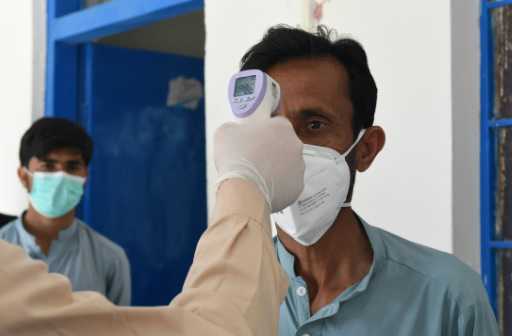Coronavirus monitoring systems strained to the extreme
27 February, 2020

Under-reporting, competing recommendations how long those infected ought to be isolated, doubts on detection tests -- the rapid climb in coronavirus cases outside China highlights weaknesses in the techniques used to identify and track the deadly virus.
Under-detection?
To stop the brand new coronavirus outbreak from learning to be a full-blown pandemic, it is vital to find and isolate infected individuals so they don't contaminate others.
But up to now, according to researchers from Imperial College London working with the World Health Organization, the world has failed at that.
"We estimated that about two thirds of COVID-19 cases exported from mainland China have remained undetected worldwide, potentially resulting in multiple chains of as yet undetected human-to-human transmission outside mainland China," they said in a written report.
One of the problems posed by this virus is that "there is a whole selection of clinical symptoms", including some no worse when compared to a common cold, Daniel Levy-Bruhl, a researcher at France's public health agency, told AFP.
This means that people with few or faint symptoms can slip through the web undetected.
Another category even harder to identify are infected persons without signs of the virus whatsoever. Scientists say these "asymptomatic" cases are probably a small minority.
"These individuals may help spread infections, but certainly significantly less than a person who is coughing and sneezing," Levy-Bruhl said.
"Studies so far concur that in the overwhelming most cases, it is persons with symptoms who transmit the disease."
Quarantine: how long?
The incubation between your moment of infection and the onset of symptoms has been estimated in most studies to average about 10 days, resulting in a recommended quarantine amount of 2 weeks for possible or suspected cases.
But recently Chinese authorities -- based on a member of family couple of cases -- have figured the incubation time could extend 24 and even 27 days.
Other scientists have reacted to these findings with skepticism.
"Recent data suggests the contrary, that the incubation period is actually shorter," Levy-Bruhl said. "There's very little chance that it's more than 14 days."
Even if it is longer, such cases remain "rare," noted Yazdan Yazdanpanah, an expert at the World Health Organization.
"An epidemic does not spread through the acute cases, which are an aberration, but due to the overall profile," he added. "We need to focus on what's most common or frequent."
How well do tests work?
The other day in Japan, two Australians and an Israeli passenger from the cruise liner Diamond Princess tested positive after arriving home for COVID-19, the disease caused by the 2019-nCoV virus.
But all three had allegedly tested negative before being allowed to disembark.
"The tests reliably detect the virus," raising questions about if they were actually properly applied or used at all in such cases, Yazdanpanah said.
Predicated on the genetic profile of the virus, samples must be examined by specialised laboratories, yielding results within a few hours.
"During the onset of the sickness, persons expel a whole lot of viruses, so it is not really a detector problem," Yazdanpanah added.
"Things get more difficult towards the finish of the condition, when there's an increased threat of negative results," he said. "But that does mean people are less contagious at that time, and have less effect on the epidemic."
Imagine if it keeps spreading?
The strategy of trying to block the virus's spread is now less viable as more and more countries become reservoirs.
At some time, national health authorities may have to switch from blocking its progress to dealing with its effects.
"In that case, we can't maintain the same approach of identifying and isolating all cases, because we won't have the resources," said Simon Cauchemez, an expert at the Institut Pasteur in Paris.
In developed countries, this may weigh heavily on health systems.
"Eighty-five percent of these infected don't have a severe type of the condition," Yazdanpanah noted. "But the kinds that are serious are worse than the seasonal flu and would need to be hospitalised."
Problems due to an outbreak become harder to cope with in a less developed setting.
Compared to the 2014-16 Ebola outbreak in west Africa, the brand new coronavirus is less deadly but harder to discover and thus stop.
"Even only if three percent of cases cause death, that can add up to a large number if 30 to 60 percent of the population is infected," said Cauchemez.
Source:
TAG(s):
